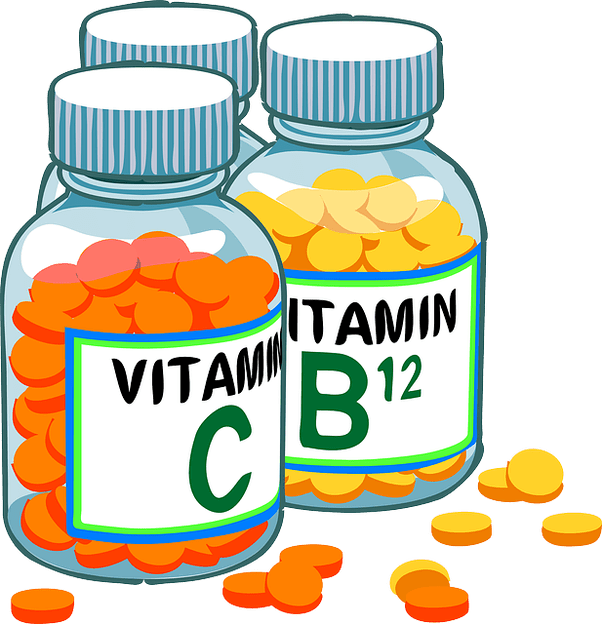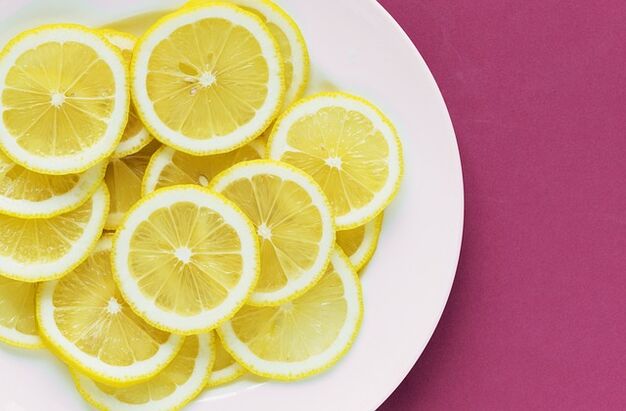Decreased libido is often associated with psychological problems: depression, fatigue, stress. This sometimes indicates not only a problem in the partner, but also about a serious illness. Today we will tell you about vitamins for potency, which will change your sex life for the better.

Factors that affect potential: desire in the head
Fatigue is the lowest cause of male libido. Professional changes, extended schedules often cut off all male sexual desires. In these cases, we see that sexual desire returns during breaks: weekends, holidays.
Male libido is often also affected by stress, regardless of its origin. Economic conditions, family problems, health problems can cause a decrease in sexual desire for a while.
Sometimes libido depends on family relationships. The constant presence of a child, the periodic rejection of a partner, can scold a person, making him doubt his manhood.
Libido problem solving is often done in dialogue: in a partner, in the family, with a doctor or psychologist. Identifying the cause of anxiety helps solve libido problems.
Medical causes of decreased male libido
Sometimes there is no psychological explanation. Keep in mind that decreased male libido can also be caused by:
- medications: antidepressants, anticancer drugs, beta blockers, hormones, etc . ;
- diseases: diabetes mellitus, obesity, thyroid damage, etc . ;
- toxic substances: alcohol, tobacco, drugs.
Thus, a sudden decrease in sexual desire can reveal an undiagnosed disease. In any case, if low libido bothers you, if it affects your daily life badly, see your doctor.
Note. A number of men take medications that have the side effects of decreased libido. They usually want to stop their treatment to restore a normal sex life. You don't have to do this! It is better to cure the problem first because the drug is prescribed, and only thus solve the problem with libido.

Vitamins
Vitamin A
Vitamin A is involved in the maintenance of the immune system and sexual function in humans, especially the male vitamin for impotence. Essential for the formation of sperm in the testicles. These come in two forms: retinol, derived from animal sources, and provitamin A, or beta-carotene, derived from fruits and vegetables.
- Recommended adult male dose: 900 mcg / day.
- Found in poultry liver (10, 000 mcg per 100 g), oily fish and whole dairy products, especially butter. Beta-carotene, a vegetable version of vitamin A, is found in orange fruits and vegetables: sweet potatoes, pumpkin, and carrots.
B group vitamins
Vitamin B is a large number of vitamins that are essential for many important functions of the human body.
B3, or niacin, in particular, is used by the body to synthesize sex hormones. Therefore, B3 deficiency can cause a decrease in testosterone, the hormone of desire. It is found in yeast, wild rice, bran, and almonds. Synthesis also requires tryptophan, which is found in animal products, meat, fish and dairy products.
B5 is involved in the production of sex hormones and neurotransmitters. Just like B6, which is also used in the production of red blood cells, serotonin and dopamine, hormones that regulate mood and libido. B5 and B6 are found in yeast, beef liver, sunflower seeds, mushrooms, soybeans, oatmeal, buckwheat, lentils, and more.
B9 is known as folic acid. This vitamin, as shown in a 2014 study, plays an important role in nitric oxide metabolism.

The state of a functioning penis (moist or erect) is regulated by smooth muscle tone. Nitric oxide is the agent responsible for loosening smooth muscles and blood vessels, allowing blood to circulate freely in the muscles. In addition, it reduces oxidative stress caused by free radicals, which increases erectile dysfunction. You can get this vitamin through supplements and certain foods such as spinach, lentils, lettuce, avocado, and broccoli.
B12 is essential for the function of the nervous system involved in sexual arousal. In addition, B12 deficiency causes greater anemia and fatigue, while B12 supplementation stimulates endurance and restores energy. B12 is found in shellfish, fish, liver, eggs, meat and dairy products.
Vitamin C
This water -soluble vitamin, also called ascorbic acid, is essential for increasing the metabolism of the human body.
Among other things, it stimulates the immune system and the absorption of iron from food, thus stimulating the production of red blood cells, which helps increase energy in the body and makes ascorbic acid a good sexual stimulant.
It is also a powerful antioxidant. Smokers consume most of the ascorbic acid consumed through food and therefore need supplements.
- Recommended dose for adult men: 500 mg / day.
- It is mainly found in large amounts in kiwi (71 mg), citrus fruits (lemon, orange, grapefruit, tangerine, etc. ), peppers, strawberries, broccoli, watermelon.

Vitamin D
Vitamin D is very important to fight winter depression and help prevent various types of cancer. It also helps libido problems. According to some studies, testosterone levels in the body are correlated with vitamin D levels. This is why it is called the desire vitamin. It also induces the movement of sperm. Therefore, vitamin D is king among vitamins for male potency.
Vitamin D is synthesized by the body during the summer months, provided a person spends enough time in the sun. If you can't afford it, you need to take special supplements.
- Recommended dose for adult men: 10, 000 IU / 15 kg.
- Found mainly in fish oil and egg yolks.
Vitamin E
This fat -soluble substance (soluble in oil) was discovered in wheat germ in 1922. It is an important antioxidant that protects human body lipids, especially cell membranes, from oxidation due to free radical attack. It is essential for human reproductive function. Vitamin E also maintains the health of the cardiovascular organs, which are necessary for the quality of penile erection.
It is in the form of various isomers (alpha-tocopherol, gamma-tocopherol and tocotrienols). Tocotrienols have the best antioxidant and anti-cancer effects.
- Recommended adult male dose: 15 mg / day.
- In large doses, it is found in the following foods: wheat germ (21 mg / 1 tbsp), almonds, sunflower seeds, pine nuts, Brazil nuts, dried tomatoes, sardines, avocados.

Vitamin K
Vitamin K, which is a clotting vitamin, will be able to stimulate testosterone production in a dose -dependent manner. In K2 form, this is most effective. Be careful if you are using anticoagulant medication, you should not take vitamin K.
- Recommended adult male dose: 120 mcg / day.
- It is found in plants and fermented foods. Supplements are available in the form of menaquinone or MK7, the most potent bioavailable form.
Calcium
Calcium, along with folate, vitamins E and C, can be therapeutic for erectile dysfunction (ED), according to a December 2010 study. Scientists found that all of these nutrients have a positive effect on several vascular factors and therefore improve erectile dysfunction. Research also shows that this combination of vitamins and minerals can help conventional medications used for ED work more effectively.
Zinc
It is another mineral that has been prescribed for a variety of health problems, including increased sperm production and increased fertility in men. Doctors also offer zinc-rich foods such as beef, oysters, dark chocolate, chicken, nuts, and more. For people with an enlarged prostate and other sexual dysfunctions.

Boron
Boron is one of the most commonly used minerals in medicines and supplements. In addition to improving bone and muscle health, you also contribute to higher testosterone levels and better mental health.
Magnesium
It is also known as a magic mineral for the body because it is involved in over 300 processes in the body, from sex hormones to neurotransmitters.
Selenium
For men, selenium is important for potency, as it helps sperm production and supports movement. About 50% of selenium in the human body is found in the testes and seminal vesicles. Doctors say that every time ejaculation occurs, selenium is lost. Therefore, you need to eat foods rich in selenium and take supplements.
Daily rate
| Ingredients | Daily dose | Maximum dose | The best food source |
| Vitamin A | 3000 IU | 3000-10, 000 IU | Orange, yellow, red and green fruits and vegetables |
| Vitamin D | 9-50 years: 200 IU 51-70 years: 400 IU >70 years: 600 IU osteopenia or osteoporosis: 1000 IU |
1000 IU | Enriched milk, oily fish |
| Vitamin E | 22 IU | 200 IU | Wheat germ, vegetable oil, nuts |
| Vitamin K | 120 mcg | Green leafy vegetables | |
| Vitamin C | 90 mg Smokers: + 35 mg |
500-2000 mg | Fruits and vegetables, especially peppers and citrus fruits |
| Thiamin (Bone) | 1. 2 mg | 30-100 mg | Whole grains, brown rice, fortified foods, legumes, pork, oysters |
| Riboflavin (B2) | 1, 3 mg | 30-100 mg | Dairy products, green leafy vegetables, oysters |
| Niacin (nicotinic acid) | 16 mg | 500-1000 mg | Beans, red meat, fish, beans, peanut jam, beans |
| Vitamin B6 | 1. 3-1. 7 mg | 100 mg | Meat, fish, poultry, eggs, potatoes, fortified grains, peanuts, soy |
| Folate | 0, 4 mg | 0. 4-1. 0 mg | Green leafy vegetables, beans, oranges, broccoli, cauliflower |
| Vitamin B12(cobalamin) | 2. 4 mcg | 1000 mcg a week or a month if deficient | Fish, seafood, meat, fortified soy milk and rice, fermented soy products |
| Calcium | 1000 - 1200 mg | 1000-1, 500 mg | Dairy products, soy milk and fortified rice, fish bones |
| Magnesium | 400 mg | 350 mg | Grains, legumes, green vegetables, legumes |
| Iron | 8 mg | Used only to treat anemia caused by iron deficiency | Meat, legumes, tofu, green leafy vegetables, breakfast cereals |
| Zinc | 11 mg | 40 mg | Oysters, meat, chicken, fish |
| Selenium | 55 mcg | 100-400 mcg | Whole grains grow in soils rich in seleniumayam, meat, dairy products |















































































